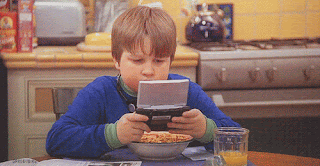27 Jan 2017
The Shocking Truth About Multi-Tasking
How does Multi-Tasking Affect Productivity?
When we multitask, it often seems like we are getting so much accomplished. But our brains are fooling us.
Did you know that the brain can’t really do two things at the same time? When we multitask, the brain has to rapidly shift its attention from one task to another. Then it has to shift back. If you multiply these shifts by all the times you switch activities, you will actually lose some time. MIT neuroscientist Earl Miller noted that our brains are “not wired to multitask well… when people think they’re multitasking, they’re actually just switching from one task to another very rapidly. And every time they do, there’s a cognitive cost.”
One reason people love to multi-task so much is the illusion of getting more accomplished more quickly. Another reason is that for every tiny task that you perform, such as answering a text, your brain rewards you with a dollop of dopamine, our reward hormone that we get for instant gratification.
In addition, research shows that while focusing on one activity, the brain uses the hippocampus for memory; however, while multi-tasking, the brain uses the stratum, which leads to superficial understanding and shorter term memory of the material. Therefore, if you really want to be efficient, you need to concentrate on one project at a time. The gratification dopamine burst will be less frequent, but your accomplishment will be real and comprehensive.
Do you have children or teens who are addicted to their phones? By interrupting their homework to check texts and answer Face Time, they will not accomplish their homework as thoroughly and will certainly lose time.
Here are some strategies for maximizing productivity by limiting multitasking:
· Do not multi-task projects that require thought, analysis, and judgment, like many homework assignments. Give these tasks your full attention to maximize performance. Take breaks to check email, phone calls, or go for a walk, but concentrate on your task for at least 20 minutes straight.
· If you must multitask, choose 2 activities, one which is mindless. For example, folding laundry or doing dishes can easily be paired with talking on the phone. Regarding homework, limit multitasking to background music and using the internet to help research a project or calling a friend specifically about a project.
· You and your child can do an experiment. Try an activity while concentrating exclusively on it and again while multitasking. Which way has the better result?
· Keep an eye on your child by having him do homework in a family area or have an open door policy to his room.
· Have family dinners with a no-electronics policy to generate bonding and meaningful discussions.
Finally, how do parents multitask? Do we “listen” to our children and spouses while doing one or two other activities, or do we give them our full attention? It’s true that many of us have too much to do each day, but we, too, will improve productivity and reduce stress while keeping multitasking to a minimum.


